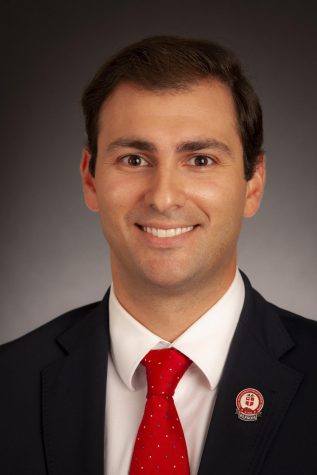Religion doesn’t matter
I want to preface this article by saying that by no means am I bashing those who practice religion. That is not the purpose of this article, instead it is to tell how we shouldn’t be blind followers in the name of religion. A majority of my examples will come from the Christian faith, as that is the one I have known all my life.
The very basis of Christianity is a spinoff of the ideology of Plato: Platonic Dualism. The original idea of Dualism is a metaphysical one instead of a moral one. For example, we consider every chair to be a chair despite their different appearances because they meet the standard for what we imagine a chair to be, with a line separating the “idea” of what a chair is and the actual physical representations of it. It was early Christians that took this ideology and moralized it for their beliefs. In this new version, God and heaven are the ones above the line, with us humans and the world beneath it. The separating line here is sin, being as that is what disconnects us from the perfection of God. This is how the basic Christian belief of striving to become “more Christ-like” came about, because we are trying to cross that line and live in heaven. However, we are stuck below the line until death. Still, the idea of becoming more Christ-like so that we can cross that line remains.
The 10 Commandments are no doubt reasonable rules within the bounds of Christianity, and even outside of them. The teachings of Jesus to be kind to others and to have an open and loving heart are all good philosophies to have. However, if you only do these things in the hopes of gaining access to heaven, you’re doing it wrong.
It was in Marcus Aurelius’ book two of “Meditations” that he talks about the “knowledge of the good.” He believed that goodness inherently comes from one’s own knowledge and questioning of what is good, instead of inherently assuming it is because that is what they were told. He tries to separate thinking through reason and thinking through emotion. When acting through emotion, you are acting on your own desires and wants. When acting through reason, you act on logic and control. The point isn’t to separate them as a whole or to even try and get rid of your emotions entirely. What he is actually arguing is that you have to step back and realize that difference between your emotions and your reason. It is here that it is important to step back and recognize that difference, and act accordingly. I believe the same thing applies to religion. Often times we must recognize the difference between reason and religion.
The idea of living a good life should come just because of that, so you can live a good and virtuous life. Take the time to step back from situations in front of you and try to think logically instead of religiously. Just because you do good things does not mean you are a good person. If you act kind or help others simply because God wants you to, that doesn’t make you a good person. If you live with an open and loving heart just in the hopes of going to heaven, that doesn’t mean you are a loving and caring person. This just makes you a good follower. Again, this is in no way bashing those who practice religion, instead it is the argument that doing what your religious text tells you to just because it tells you to makes you a good follower, not a good person.
To truly live a virtuous life, you must step back and think logically. You have to look at the things you do and take the time to decide if they are virtuous for yourself. Before you volunteer at your local food bank, ask yourself if you do it just because you know it is what you’re supposed to do, or if it is because you honestly see it as a virtuous thing to do. The latter is what makes your virtuous. If your actions come from you actively identifying something as virtuous instead of being a blind follower, then you can live a virtuous life.
In this sense, religion doesn’t matter. You can practice it, read the texts, and attend service all you want and still be blind. You shouldn’t not kill, steal, lie or cheat just because God said so. You shouldn’t not do those things because you identify them as non-virtuous. In the same sense, you shouldn’t love and care for people just in the hopes of getting through the pearly gates. Live the life you do because you recognize your actions as virtuous, not because God told you how to live. I’m not saying to become atheist or stop practicing by any means. All I’m saying is to take your foundational beliefs and actions, and decide if you do them because you think they’re good things to do, or if it is because your god told you to. Continue to practice your faith, but do it so that you recognize the good as the good, instead of the good as the rules.


















Rukia Philip • Dec 10, 2020 at 8:53 PM
I appreciate this article you are doing a great work i have been asking myself about religions and get confused….
Thank you so much and God bless you